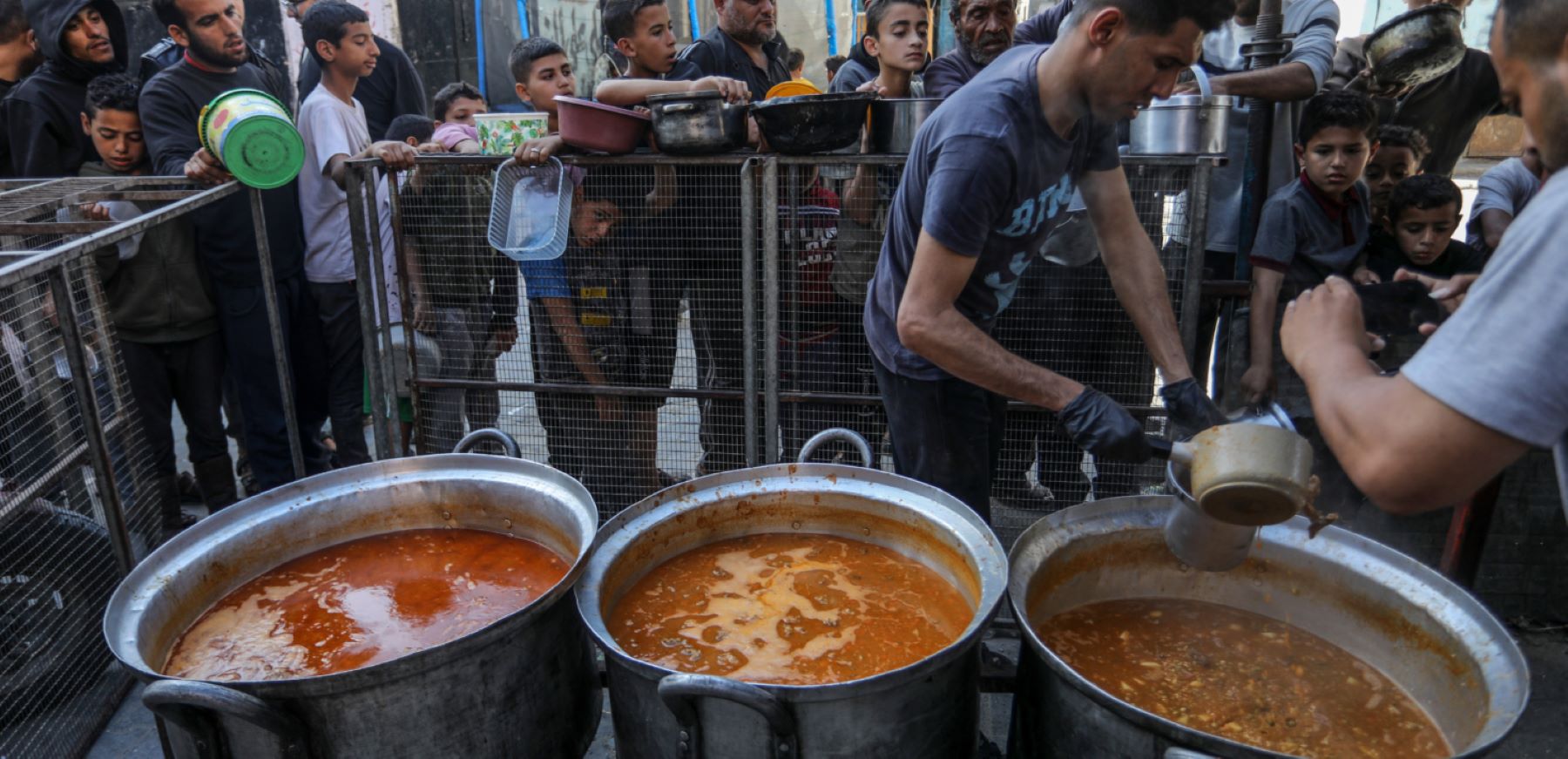Israel’s announcement that it has approved the opening of two humanitarian routes into the occupied Gaza Strip, including the temporary re-opening of Erez crossing in northern Gaza and Ashdod port, is a welcome move but is insufficient to tackle the scale of the catastrophic humanitarian crisis in Gaza, said Amnesty International today.
“Opening additional routes to facilitate delivery of aid into Gaza is something that humanitarian organizations and human rights groups, including Amnesty International, have repeatedly been calling for, for months. But while opening routes for humanitarian aid to enter northern Gaza is absolutely necessary, Israel’s announcement is long overdue and remains woefully insufficient given the catastrophic levels of hunger in Gaza,” said Heba Morayef, Amnesty International’s Regional Director for the Middle East and North Africa.
All available aid routes into Gaza must open
“All available aid routes need to be opened, immediately, and there must be an urgent significant increase in the aid allowed through Gaza’s southern crossings, where only a fraction of the needed aid and imports have been allowed to pass since 7 October 2023.
“After deliberately hampering aid and drastically tightening its 16-year-long suffocating blockade for the last six months inflicting horrifying conditions on civilians in Gaza, Israel cannot be commended for finally making minimal effort to address a humanitarian catastrophe that it is responsible for creating. Opening additional aid routes sooner could have stopped hundreds of thousands of people from enduring appalling levels of hunger.”
Opening additional aid routes sooner could have stopped hundreds of thousands of people from enduring appalling levels of hunger.
Heba Morayef, Regional Director for the Middle East North Africa
More than 33,000 Palestinians have already been killed in Israel’s relentless bombardment and at least 31 have starved to death, 28 of them children.
Amnesty International is calling for these measures to be accompanied by an immediate sustained ceasefire by all parties and a complete lifting of Israel’s illegal blockade of Gaza to truly alleviate mass suffering. The organization is also calling for armed groups to release hostages held in Gaza and for Israeli authorities to release arbitrarily detained Palestinians.
Legal obligations
Enabling the sufficient provision of humanitarian aid to Palestinians in Gaza is also a legally binding demand of the International Court of Justice which just last week ordered Israel to take additional provisional measures to prevent genocide in light of the worsening situation in Gaza, further to its ruling on 26 January. It acknowledged that in Gaza famine is no longer a risk but it is “setting in” and it ordered Israel to take tangible measures to allow urgently needed humanitarian aid to reach those in need.
More than 200 aid workers have been killed since October, the vast majority of them Palestinian. Humanitarians have repeatedly said that a ceasefire is essential to allow them to provide anywhere near sufficient levels of aid, particularly given that, with levels of hunger this severe, more food, more water and urgent medical care is needed, against the backdrop of a health sector that has been devastated by Israeli military operations.
The reality is that without a ceasefire the safe and effective delivery of humanitarian aid remains at risk.
Heba Morayef, Regional Director for the Middle East North Africa
“The reality is that without a ceasefire the safe and effective delivery of humanitarian aid remains at risk. The end of Ramadan is just days away and both the binding UN Security Resolution calling for an immediate ceasefire and the ICJ ruling have been utterly ignored,” said Heba Morayef.
“Despite evidence of war crimes by Israeli forces, the killing of tens of thousands of Palestinians and the imminent risk of genocide, US President Biden only saw fit to exert real pressure on Israel this week. The USA can and must do much more to use its influence to halt the suffering and bloodshed in Gaza.”
Before the latest UN Security Council resolution was allowed to pass, the US administration repeatedly used its veto power to block resolutions calling for a ceasefire. Last week President Biden authorized the transfer of 1,800 MK84 2,000-pound bombs that one senior administration official said ‘can destroy entire blocks’ and media reports have indicated that the President may soon approve the sale of $18 billion F-15 fighter jets to Israel.
“Earlier today the UN Human Rights Council adopted a resolution calling for a halt on all arms sales to Israel to prevent further violations of international law. Instead of approving further arms transfers and continuing to make profits from a situation that the International Court of Justice found could plausibly amount to genocide, President Biden must ensure the USA uses its influence to do everything in its power to push for an immediate ceasefire,” said Heba Morayef.
What else can I do to help?
For more ways to take action and further information on the current crisis and Amnesty’s work on Israel and the Occupied Palestinian Territories, check out the action toolkit on our country page.
Top image: Palestinians including children, who took refuge with their families in Rafah city, wait in line to get a bowl of food distributed by charity organizations for their families, in Rafah in the Gaza Strip on March 04, 2024. Photo by Abed Rahim Khatib/Anadolu via Getty Images.






















